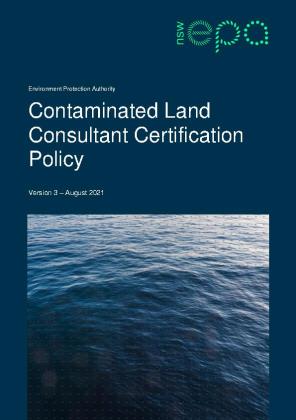Where to find a consultant
There are many environmental consultants, but not all will have the relevant skills or qualifications in contaminated land assessment and remediation.
Internet search
Enter 'Environmental consultants' in a search engine like Google, or the Yellow Pages.
Professional associations
Professional associations may provide contact details of their members. Some associations are
Word of mouth
Contact people or businesses you know who have engaged a contaminated land consultant and ask if they can make a recommendation.
What to look for in a consultant
The consultant you choose should meet the following criteria
- experience in contaminated land assessment and management
- knowledge of relevant NSW legislation and guidelines, planning and development processes, and local council policy
- appropriate insurance cover
- certification under the CEnvP(SC) or CPSS CSAM scheme (if possible)
- documented procedures for completing a project, including a quality control and quality assurance program
- appropriately skilled people to your job - technical skills needed can be found in Schedule (B9) on Competencies and Acceptance of Environmental Auditors and Related Professionals of the National Environment Protection (Assessment of Site Contamination) Measure 1999
- professional and ethical reputation
- able to complete projects on budget and on schedule
- network of contacts to provide opinion when necessary
- excellent communication skills
Selecting your consultant
Make a short list of contaminated land consultants with appropriate skills and qualifications, and ask for a quote of the project. Try to identify at least three candidates for consideration.
Provide as much information as you can about the property, including the history of activity at the site, potential sources of contamination, and company records on where and how chemicals and wastes have been used or stored. Detailed information will allow consultants to be more accurate in their quotes.
Create a list of the services you need from the consultant (usually called the 'scope of works'). If you're not sure what's needed, the EPA's Guidelines for consultants reporting on contaminated sites (PDF 428KB) provides a description of contaminated land assessment and remediation, and the works involved in each stage.
Ask for the following in each quote
- the consultant's understanding of the project and a summary of how they propose to undertake the work, including any proposed sampling plans and laboratory analysis
- the project team, their qualifications and experience, and the consultant's main contact for the project (the 'Project Manager')
- the consultant's experience working on similar projects (including project summaries and, if possible, contact details and references for their clients)
- whether any plans and reports will be prepared, or approved, by a certified contaminated land consultant
- details of the consultancy's health and safety procedures, and other relevant qualifications specific to the intended work (for example confined space training)
- whether the consultancy has an accredited quality system (ISO 9000 or equivalent)
- familiarity with relevant NSW legislation and guidelines (environmental and planning)
- details and qualifications of all sub-contractors the consultant intends to use, and what they will be used for
- a breakdown of your costs and whether the work is to be performed on a fixed total cost, or a fees and expenses basis, and a schedule of rates for any additional work that needs to be undertaken beyond the original scope
- timing of all stages of the project and a date for receiving the final report
- insurance details of the consultant (including professional indemnity and public liability).
It might also be appropriate to ask the consultants whether they have any conflict of interest in undertaking the work and whether they will have qualified staff available at the time you want the job done.
Check the references provided before choosing a consultant. You can get valuable information about the standard of their work, ability to communicate, stay on schedule, and keeping costs down, by talking to companies they have previously worked for.
Engaging a consultant
Once you have selected a consultant, you'll need a contract that sets out the services they will provide. The contract should include
- the scope and nature of the work
- when you will receive progress reports
- indemnities and limits on liability and insurance
- information flow
- document ownership and retention procedures
- methods of costing.
Consultants may attach a standard contract to their proposal, but they will likely be prepared to negotiate a suitable agreement. Ask a solicitor for advice if you are not familiar with contracts.
Before you sign the contract, ensure that the consultant identifies any changes to their quote if some time has passed since it was submitted.
Engaging a site auditor
The NSW site auditor scheme is managed by the EPA with the aim to protect the environment and human health through proper management of contaminated land. The scheme provides the public access to competent technical advice with increased certainty in the 'sign-off' of contaminated land assessments and remediation.
See the NSW site auditor scheme for more information.
Disclaimer
The EPA has prepared this information in good faith, exercising due care and attention. No representation or warranty, express or implied, is made as to the relevance, accuracy, completeness or fitness for purpose of this information in respect of any particular user's circumstances. Users of this information should satisfy themselves with its application to, and where necessary seek expert advice in respect of, their situation.


